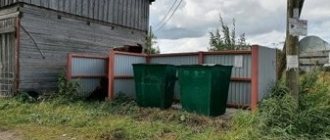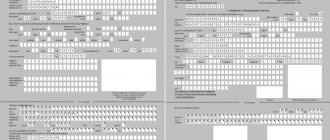For many Muscovites, remodeling an apartment is an opportunity to make their home more comfortable and convenient. This issue is especially relevant for residents of mass-produced houses.
“The current procedure in the capital for approving the redevelopment of premises makes it possible to ensure compliance with construction and sanitary standards when carrying out repair work, and to protect the interests of the owner and his neighbors. Last year, we transferred the government service for approving reconstruction and redevelopment into an electronic form - now residents can submit an application at any convenient time, send documents and track the status of consideration of the application in their personal account on the mos.ru website. The process of obtaining a service has become as transparent and convenient as possible, and the time frame for receiving a decision has been reduced,” said Deputy Mayor of Moscow for Housing, Communal Services and Landscaping Pyotr Biryukov.
By law, major changes to the apartment plan must be approved by the Moscow Housing Inspectorate. Moreover, it is legally correct to obtain permission in advance, before the start of repairs. But in practice, owners often try to approve ready-made alterations. How to properly coordinate renovations in an apartment and what kind of redevelopment cannot be legalized - in the mos.ru material.
What is redevelopment
Redevelopment is called repair or construction - everything that requires changes to the technical documentation (architectural and planning solution). According to the Housing Code of the Russian Federation, this is any work the result of which is reflected in the technical plan of the premises. They can not only affect the apartment itself, but also change the characteristics of the entire house. Therefore, redevelopment and reconstruction require approval.
Strict requirements were introduced due to the fact that redevelopments are often carried out in violation of building codes and regulations. For example, demolition of load-bearing walls in an ordinary high-rise building can lead to partial or complete collapse. Unfortunately, such stories do happen. This violation refers to work that is prohibited. There are two more types of work: those that require approvals and those that can be performed without approval from regulatory authorities.
Types of jobs
Depending on how large-scale actions you have planned, you can distinguish several types of work on redevelopment of a private house:
- Indigenous, which implies both internal redevelopment of the house and facade work. These include changing the number of storeys of a building, constructing an extension or attic, and rebuilding the foundation. To carry out such work, you will need to submit an individual project, since standard design does not imply such redevelopment in the house;
- Internal redevelopment involves re-equipping the premises according to the personal needs of the owner. If you are absolutely sure that your actions are legal, then you can start them immediately and get permission later. To record changes in the building plan, a BTI employee is called to the house. He registers all changes and draws up a new construction plan, on the basis of which changes are made to the technical passport of the facility.
- External redevelopment involves updating the facade, changing window openings, moving the front door, and re-equipping the roof with a new roof. To decorate the facade with insulation or other modern materials, the consent of the authorities today is required only if the building is classified as a cultural monument of architecture;
- Restoration work involves restoring the appearance of the building, rebuilding worn-out and damaged parts of the structure. Such work requires permission from the BTI.
Information!
Depending on the type of your private home, different actions are possible in it. So, for example, if the building is frame, then you can turn almost any of your ideas into reality. In situations with brick houses, things are somewhat more complicated, since some walls are parts of load-bearing structures.
Read about redevelopment in a mortgaged apartment here.
How to avoid mistakes
Redevelopment rules are regulated by the Housing Code of the Russian Federation, various construction and sanitary standards and regulations, as well as a number of regulations. They protect residents from the wrong actions of their neighbors, says Andrey Kuptsov, head of the engineering survey sector of the State Budgetary Institution Expert Center. The center's specialists examine residential and non-residential premises in apartment buildings to determine the technical condition of load-bearing and enclosing structures after redevelopment, including the development of design documentation.
According to the expert, if the owner of one apartment does everything reliably, using modern materials and technologies, then it is not necessary for another. And this will result, at best, in a conflict with neighbors. Therefore, building standards are the same for everyone.
“The biggest mistake is when people want to improve their living conditions by redevelopment, but forget about the rules. It is impossible, for example, to enlarge the bathroom and kitchen at the expense of living rooms. People think that everything is fine, but it is prohibited. So they worsen the conditions for other residents of the house: incorrect waterproofing - and the neighbors below will experience a flood,” said Andrey Kuptsov. According to him, it is possible to increase the so-called wet zone through the corridor, but this also has its own nuances.
Another common mistake is combining a loggia or balcony with the residential part of the apartment.
“Such redevelopment is prohibited because it disrupts the thermal contour of the building. As a result, there is an additional load on the central heating system, which can lead to significant heat loss and even mold in neighboring apartments. In the capital, in agreement with the Moscow Housing Inspectorate, it is allowed to dismantle the window sill in order to install a wider door block,” says the expert.
The law also prohibits bringing central heating radiators into the loggia. Andrey Kuptsov explains that this is a summer room and the heating system may not withstand temperature changes. “We are forced to refuse technical conclusions and designs, since this work is unacceptable and can lead to a deterioration in the living conditions of other people in an apartment building,” adds the specialist.
According to him, the installation of balconies above the second floor is also prohibited. Such an extension creates additional load on the supporting structures. According to the rules, only residents of the first floors can build balconies for themselves, and only as a non-permanent building. Such balconies on the first floors must be without a heating system, foundation and underground premises. Everything else will have to be dismantled.
In addition, ventilation ducts are not allowed to be hung on the main facades of the house that face the street. This requirement applies to all non-residential premises located on the ground floor of an apartment building. In this case, ventilation should go to the internal facade - in the courtyard of the house. This requirement allows you to preserve the aesthetic appearance of buildings. You can complain about violators to the State Housing Inspectorate of the city of Moscow.
The ventilation duct inside the apartment (between the kitchen and the bathroom) is demolished by enterprising residents, increasing the number of precious square meters. This literally blocks the flow of air into the apartments above and below the riser. The law will oblige you to return everything as it was.
Houses with gas equipment also have their own nuances. For example, you can move the slab to another location with the approval of the Moszhilinspektsiya and provided that the work is carried out by Mosgaz. But you cannot combine a kitchen with a gas stove and a living room. In rooms where there is gas, according to the standards, there must be a separate door to avoid the spread of gas if it leaks.
Before making an opening in a load-bearing wall, it is necessary to carry out calculations and obtain approval. In this case, the structure must be well strengthened. It will not be possible to create heated floors using central heating. Heated floors can only be connected to the apartment’s electrical supply and provided that the allocated electrical power is sufficient.
Muscovites also began to get carried away with adding mezzanines inside the premises, says Andrey Kuptsov. The mezzanine area should not exceed 40 percent of the room area. Sometimes owners forget about this and make the “second floor” much larger. However, such an excess leads to an increase in the load on the load-bearing walls.
“Over time, some things are allowed, some things are prohibited. Today the list of prohibitions consists of 26 points,” says the expert. All of them can be found at the link.
How to coordinate redevelopmentRedevelopment: what is possible and what is not
The kitchen and bathroom cannot be located above the living rooms
The requirement of sanitary standards became decisive in the lawsuit regarding the redevelopment of an apartment in one of the apartment buildings in Krasnodar. The owner applied to the local self-government body with an application to obtain documents for the reconstruction of the premises that had already been carried out. The municipality refused to issue a permit. The owner went to court.
The first instance and the appeal recognized the plaintiff’s right to preserve the apartment in its renovated form, finding that the modified residential premises met the requirements of SP-54, did not violate the rights of neighbors and did not threaten their life and health.
The municipality filed a cassation appeal with the Supreme Court of the Russian Federation. The RF Supreme Court noted that the courts did not take into account the essential circumstances of the case. According to clause 3.8 SP-2.1.2.2645-10, in residential buildings it is prohibited to place bathrooms and toilets above living rooms and kitchens. The refusal to issue a permit for reconstruction, issued by the local self-government body to the plaintiff, referred to precisely this circumstance.
During the inspection and examination of the living space, it was established that after the partitions were moved, the area of the kitchen and bathroom increased. Since the plaintiff’s apartment is located on the fourth floor, it was essential for the case to clarify which rooms on the third floor the kitchen and bathroom were located after the renovation.
The court of first instance and the court of appeal did not take this circumstance into account when making their decisions. The RF Supreme Court sent the case for reconsideration.
The Armed Forces of the Russian Federation on illegal redevelopment and who is responsible for it
181850
In a simplified manner
Without approvals, you can make simple repairs to the apartment that will not lead to significant changes. According to Andrey Kuptsov, without approval, you can make an opening in a non-load-bearing wall, if this does not change the load on the floors, and replace plumbing equipment without changing its location. It is also allowed to re-lay the floors if the parameters of the room, such as its height, do not change. A sketch of the work performed must be sent to the Moscow Housing Inspectorate for approval. There is no need to coordinate the replacement of finishing coatings on walls, ceilings, or floors - for example, replacing linoleum with laminate or tiles.
In a simplified procedure, you can agree on the installation of built-in cabinets, the laying or installation of doorways in non-load-bearing partitions, the rearrangement of a sink in the kitchen, or the replacement of a bathtub with a shower within the boundaries of the bathroom.
What if the work has already been done?
If you have already made changes, the outcome of the situation may be different, depending on how serious the work was carried out. You should follow this procedure:
- Write an application for redevelopment;
- Receive a technical opinion;
- Obtain the consent of residents and neighbors;
- Obtain an extract from the house register;
- Submit all collected documents to the district administration;
- After receiving permission, go to the BTI to draw up new technical documentation;
- An inspection must be carried out confirming that all actions were carried out according to the rules;
- A conclusion from the Sanitary and Epidemiological Service will be required on the premises’ compliance with standards;
- You will also need to draw up a project if the changes made require it;
- Only after submitting all documents to all involved organizations can the redevelopment be considered legal; most likely, you will have to pay a fine.
Attention!
It happens that the administration does not give permission for work already carried out.
Then he will have to go to court and file a statement of claim. In your claim, you should refer to the legality of your actions and involve the documentation you received and the opinions of independent experts. For the most competent filing of a claim, it is best to contact a competent lawyer, otherwise it is possible that your claim will not be satisfied, and the changes that you have made to the building will have to be eliminated. Share:
Special cases of redevelopment
When redeveloping a residential building that is a cultural heritage site, two options for carrying out the work are possible. If this affects the subject of protection, then the design documentation for the adaptation of residential premises must be approved by the Department of Cultural Heritage of the city of Moscow. Otherwise, the applicant submits project documentation to the Moscow Housing Inspectorate, which forwards the documents to the capital’s Department of Cultural Heritage. Its specialists prepare a final decision and forward it to the Moscow Housing Inspectorate.
If a house is recognized as unsafe, then it is prohibited to carry out redevelopment and reconstruction.
And the expert calls the open plan, popular in new houses, quite conventional. In any case, the premises there are planned in advance. “Zoning still remains: where there should be a kitchen or bathroom, you cannot make a living room,” explains Andrey Kuptsov.
If you buy an apartment in a new building, where there is nothing but load-bearing walls, you need to start repairs by developing a project and getting it approved by the Moscow Housing Inspectorate. After this, you can begin repairs.
Sample written consent
It is not possible to obtain permission from neighbors in writing according to the sample. The document is drawn up in free written form. The paper must contain information about the owner of the neighboring apartment and his permission to carry out the work. In order not to bother your neighbors with writing a large text and not to take up their time, the agreement is printed in advance. It states:
- document's name;
- data (passport) about the owner of the apartment in which the redevelopment will be carried out;
- place of residence of the applicant;
- full address of the housing (apartment) to be refurbished;
- list of work being carried out.
The neighbor will only have to enter his full name, place of registration, write the address for drawing up the permit, the date and sign an autograph.
To obtain permission for redevelopment in a communal apartment, the consent of all neighbors is required, regardless of whether their rights and interests are affected or not. This formulation of the question is related to the fact that communal apartments are owned by many people, regardless of whether there is a delimitation of housing shares or not. There is no need to have neighbors' statements certified by a notary.
If a neighbor rents housing under a social tenancy agreement, a notification is sent to the department of the municipal architect, who is the actual owner of the property. In the future, local governments will coordinate redevelopment with such neighbors.
Consents received from neighbors, family members, and banking organizations are sent as part of a package of documents to the BTI. The latter, having reviewed the provided papers, issues permission to carry out redevelopment. This document, along with the others, is sent to the Housing Inspectorate.
Redevelopment by law
Unfortunately, people who started redevelopment do not always consider approvals a matter of prime importance. “As long as you are using the apartment, this may not affect you in any way, unless your redevelopment does not harm other residents. And if you decide to sell your home, a sensible buyer will first of all ask to see a recent technical passport, which is provided by the Moscow City Bureau of Technical Inventory (BTI). And compare it with what actually exists. If the parameters do not match, he will demand a price reduction or legalization of the redevelopment,” says Andrey Kuptsov.
By law, redevelopment must be approved before the renovation begins. To do this, you will need to develop a redevelopment and reconstruction project: it should only be carried out by a design organization with the status of a full member of a self-regulatory organization (SRO). You can check this on the website of the National Association of Surveyors and Designers (NOPRIZ). The State Budgetary Institution “Expert Center” is one of such organizations, and its employees have extensive experience in working with different situations.
Redevelopment can also be done according to a ready-made scheme from the catalog of standard projects already approved by the Moscow Housing Inspectorate. In this case, experts will need to verify on site whether it is possible to carry out the work. “They will check load-bearing and enclosing structures, floors, walls, engineering systems - how reliable their condition is today and how the work that the owner wants to carry out will affect them,” noted Andrey Kuptsov.
From August 2021, it is possible to legalize the redevelopment of an apartment only in electronic form. To do this, you need to collect all the documents and submit an application on the mos.ru website. After all the examinations, usually within 20 days, the owner receives a decision on approval.
If the owner of an apartment wants to legalize a redevelopment that has already been carried out, he must first order a technical report from the design organization on the admissibility and safety of the work performed. But we must take into account that specialists, for example, will have to partially open the walls or floor. “If you made an opening in a load-bearing wall, they will check whether the reinforcement was made, whether it is correct, and make a calculation. If it's wrong, you'll have to redo everything. For redevelopments that have already been completed, they also make sure to check the waterproofing,” says a specialist from the State Budgetary Institution “Expert Center”.
Having received the technical conclusion, you can contact the Moscow Housing Inspectorate with an application for the provision of public services. In this case, the applicant must pay an administrative fine for the illegal work carried out.
Lawyer's answers to private questions
I want to buy a private residential house. Tell me how to determine whether redevelopment has been carried out in the cottage?
Ask the seller to show you the registration certificate of the residential building. The BTI document must be recent, and not 10 years old. Check the technical data sheet with the layout that is currently inside a private house. Use a tape measure to measure the partitions, piers, and openings in the walls - they should match the dimensions on the diagrams in the technical passport. If some planning elements are missing or they do not correspond to the “paper” ones, the redevelopment is most likely illegal.
Is it possible to sell a private house if it has illegal redevelopment?
Yes, you don’t need a registration certificate to buy and sell real estate. However, if the buyer discovers unauthorized alterations to the house, he will want a discount. The price of housing with an unregistered configuration change is much lower. And in some cases, redevelopment cannot be legalized. Then the search for a buyer may be delayed.
Do I need to obtain the consent of all home owners if I want to remodel?
Yes, the consent of all copyright holders of the house is a prerequisite. Consent is expressed in the form of signatures. Co-owners of the house must come to the MFC and sign the application for a permit. If someone cannot visit the MFC, you can draw up a power of attorney for a representative (with the right to sign for the principal).
Is it possible to demolish walls in a frame-panel house?
Almost all walls in a frame-panel house are load-bearing. They cannot be completely dismantled. Small openings are allowed to create windows or doors. Then you need to further strengthen each such opening. Otherwise, there will be a risk of deformation or collapse of the house structure.
Fines and sanctions
The fine for Muscovites for illegal redevelopment of an apartment is set at two to two and a half thousand rubles. For officials in Moscow, fines range from four to five thousand rubles, for legal entities - 40-50 thousand rubles. In this case, the owner will be required to restore the original appearance of the premises. And if this is not done within a certain period, the materials will be sent to court.
Often illegal redevelopments are discovered by neighbors who begin to flood. “If the owner does not respond, they contact the Moscow Housing Inspectorate, its experts will inspect both premises, draw up a protocol, a fine and an order to eliminate the violation. The owner then has two options: return everything to its original position or eliminate the violations and legalize the redevelopment,” says Andrey Kuptsov. At the same time, it will not be possible to ignore the requirements - the owner may even face selling the apartment at auction.
Last year, the Moscow Housing Inspectorate received almost 22 thousand applications for approval of reconstruction and redevelopment. Of these, about seven thousand applications were related to previously completed work. It is difficult for experts to judge how many people do not apply for approvals.
“I don’t think this will cease to be relevant, because people will always have a desire to improve their homes. Everyone wants to improve what they buy. Today apartments are built to be more comfortable than 20–30 years ago. But there are still a lot of people willing,” the expert notes. Therefore, when deciding on a global remodel, you should entrust calculations and approvals to experts.
Why register?
Many people wonder why such actions need to be formalized at all, since the person is the owner and can independently make decisions regarding his property? The thing is that not all operations of this nature are safe. It is possible that during dismantling the supporting structures may be damaged, which can be dangerous.
Read about the consequences of illegal redevelopment here.
Without registering the redevelopment in accordance with the law, you risk encountering problems when selling real estate, since all actions of this kind must be registered in the cadastral documents of the structure . The technical passport of the object must be updated upon sale, which obliges the owner to invite an inspector who, having identified a discrepancy with the plan, can impose a fine on the owner and force him to restore everything according to the plan in court.
Attention!
Therefore, the most correct decision would be to register the changes and make them according to the law. The cost of registration will be 2,500 rubles, and the period within which the permit will be ready will be 2 months.
When permission for redevelopment is not required
There is no need to submit a project and obtain permission in the following cases:
- installation of built-in furniture;
- carrying out cosmetic repairs (coating the floor and ceiling, laying tiles, replacing wallpaper on the walls), which does not require a significant change in the design of the living space;
- glazing of balconies and loggias, installation of antennas;
- when installing partitions in an apartment that do not affect the supporting structures;
- rearrangement (installation of a new) electric stove within the kitchen;
- installing an air conditioner on the wall of the facade of the house.
Agreed options for redevelopment of an apartment in a panel house. Renovation ideas for a panel house.
Below we have given several examples of coordinated reconstruction of apartments in large-panel buildings. Perhaps you can get some ideas from them for remodeling your apartment.
Renovation of a three-room apartment in a panel house of 60 sq. m.
This example shows the reconstruction of an apartment with the expansion of the wet area (bathroom) into the hallway and a device for accessing the kitchen through an opening in the main wall. Such redevelopment of a three-room apartment in a panel house is very common.
Renovation of a two-room apartment in a panel house.
before reconstruction
after the reconstruction
Above is an example of a successful redevelopment of a two-room apartment, which allows you to gain an additional isolated room by moving the kitchen. True, in most apartments of such houses, the location of the load-bearing walls does not allow such reconstructions. However, such renovation of a two-room apartment in a panel house with the transfer of kitchen equipment is one of the most common.
Redevelopment of three rubles in a panel house.
before renovation
after renovation
The illustrations show renovations in a new panel building. The renovation of a three-room apartment in a panel house consisted of moving the kitchen to the corridor in the I-155 series house. This series of houses, in general, does not have as many load-bearing walls, and therefore provides a certain freedom to realize your ideas. In addition to the relocation of kitchen equipment, the configuration of non-load-bearing partitions between living rooms has changed slightly.
Redevelopment of a four-room apartment in a panel house.
before reconstruction
after the reconstruction
These pictures show the agreed redevelopment with the relocation of the restroom and the expansion of the bathroom into the corridor in a house of the KOPE series. This is one of the most successful series in the entire history of panel housing construction in terms of thermal engineering, construction and planning solutions.
Redevelopment of a panel Khrushchev building.
One of the few panel series with internal non-load-bearing walls is the house of series 1-515 in a five-story or nine-story design. True, nowadays these houses are no longer built. This freedom even allows you to combine the kitchen with an adjacent room by completely dismantling the partition separating them.
Redevelopment of a one-room apartment in a panel house.
Unfortunately, most one-room apartments, due to their area, leave very few options for any significant reconstruction. In this case, a simple redevelopment of a one-room apartment in a panel house was carried out with a slight increase in the wet area.
Redevelopment of a panel three-room apartment.
Another example of a classic remodel. The renovation of a three-ruble panel house consisted of the following: a toilet was installed in the corridor area, and the entrance to the kitchen was made through an opening in the load-bearing panel.
Redevelopment in a 9-storey panel house.
Renovation of a nine-story panel building represents the same idea as was presented in the previous example. The only exception was the combination of the living room with the corridor and the arrangement of a separate storage room.
Redevelopment of a two-room apartment in a panel house.
This redevelopment of a 2-room apartment in a panel house consisted of replacing plumbing fixtures and changing the dimensions of the window and door opening leading to the balcony.
Sanctions for illegal redevelopment
Yes, unauthorized manipulations with changes in the “insides” of even one’s own private home can be punishable financially. In the form of a fine, for example. Illegal modifications without permission are usually discovered during the sale or purchase of property or its inheritance. Or, suddenly some regulatory authorities appear with an inspection. And when they discover illegally carried out redevelopment, they have the right to sue the owner of such an object.
And the unlucky owner will have to pay quite a fine. He may also be required to return all alterations to their previous state within a reasonable time.











